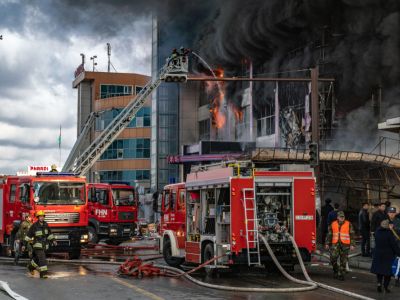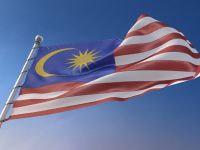Pakistan said Saturday it would give the international community its "full support" in efforts to combat terrorism in the wake of the devastating attacks on the United States.
But Foreign Minister Abdul Sattar also signaled Islamabad would require any military action against Afghanistan, which is harboring prime suspect Osama bin Laden, to be sanctioned by the United Nations.
Speaking after a meeting of President Pervez Musharraf's cabinet and National Security Council (NSC) to discuss a US request for cooperation, Sattar said Islamabad recognized that the terrorist attacks had provoked shock and outrage throughout the world, including in Pakistan.
"The NSC and the cabinet reached consensus on the policy of full support to the world community in combating international terrorism," Sattar said.
US Secretary of State Colin Powell thanked Pakistan for its stance, which he described as "very forthcoming."
"I especially want to thank the president and the people of Pakistan for the support that they have offered and their willingness to assist us in whatever might be required in that part of the world," Powell said at Camp David.
US President George W. Bush later called Musharraf to also express his gratitude.
Pakistani officials said the two leaders had a cordial conversation and Bush expressed his "warm thanks for Pakistan's support in America's hour of crises and grief."
However Pakistan's condition it would act only after UN approval appeared to conflict with what the United States expected from Islamabad.
Pressed on whether Pakistan would go along with military action, Sattar said repeatedly: "Pakistan will comply with the decisions of the (UN) Security Council."
But senior US officials said Pakistan's support was "about as complete, unconditional and unqualified as you can get," and it had not requested a specific UN resolution to authorize any action.
The official added Pakistan had agreed to a complete list of specific steps Washington had asked them to take.
However Sattar would not be drawn on whether "full support" would mean granting the United States the use of its airspace or ground facilities for an attack on Afghanistan in retaliation for sheltering bin Laden.
He did acknowledge that the US had tabled a series of specific requests from the US but stressed that no decision on any action had been made.
The US requests are understood to focus on the sharing of intelligence on bin Laden and possible use of Pakistan's airspace for military operations.
Sattar said he did not envisage Pakistan participating in any military action outside of its borders.
"That question does not arise. We have not been asked by anyone to take part in an international campaign," he said.
Musharraf, wearing his uniform as general and military chief, opened Saturday's NSC and cabinet meeting by asking his civilian and military chiefs to observe a minute's silence for the victims of Tuesday's attacks on the World Trade Center in New York and the Pentagon in Washington.
He said the attacks killed "thousands of innocent people from all over the world, people of all religions, and, may I also add, people of all ages, children, young men, women and old people."
Signs that Pakistan was swinging towards backing US action prompted a warning from the Taliban of bloody retaliation.
"The possibility of a massive attack by our mujahideen (holy warriors) cannot be ruled out if any neighboring country offers its ground or air bases to US forces," a Taliban foreign ministry statement said.
"It's possible that we will invade any country that provides access to the US. Our mujahideen will force their way into their territory.
"The responsibility for the grave consequences and instability of the region would then rest with them."
There are also signs of growing opposition from Islamist groups within Pakistan.
The right-wing Urdu-language newspaper Ummat warned Saturday that: "If the US takes any action against Pakistan and Afghanistan on the excuse of getting Osama, it will make over one billion Muslims its enemy."
Islamabad is expected to make some requests of its own in exchange for cooperation with Washington, such as the relaxation of US sanctions imposed over its nuclear program and the military coup here in October 1999.
Pakistan's influential intelligence service enjoys close links to the Taliban, reportedly providing it with technical advice, weapons and supplies.
The government denies such active collusion but close ties to the dominant political force in its unstable neighbor has long been a cornerstone of Pakistani foreign policy.
The scale of the attacks on the United States, however, has transformed the geo-political landscape and Pakistan knows it could pay dearly -- particularly in economic terms -- if it refuses to go along with Washington's demands -- ISLAMABAD (AFP)
© 2001 Al Bawaba (www.albawaba.com)









